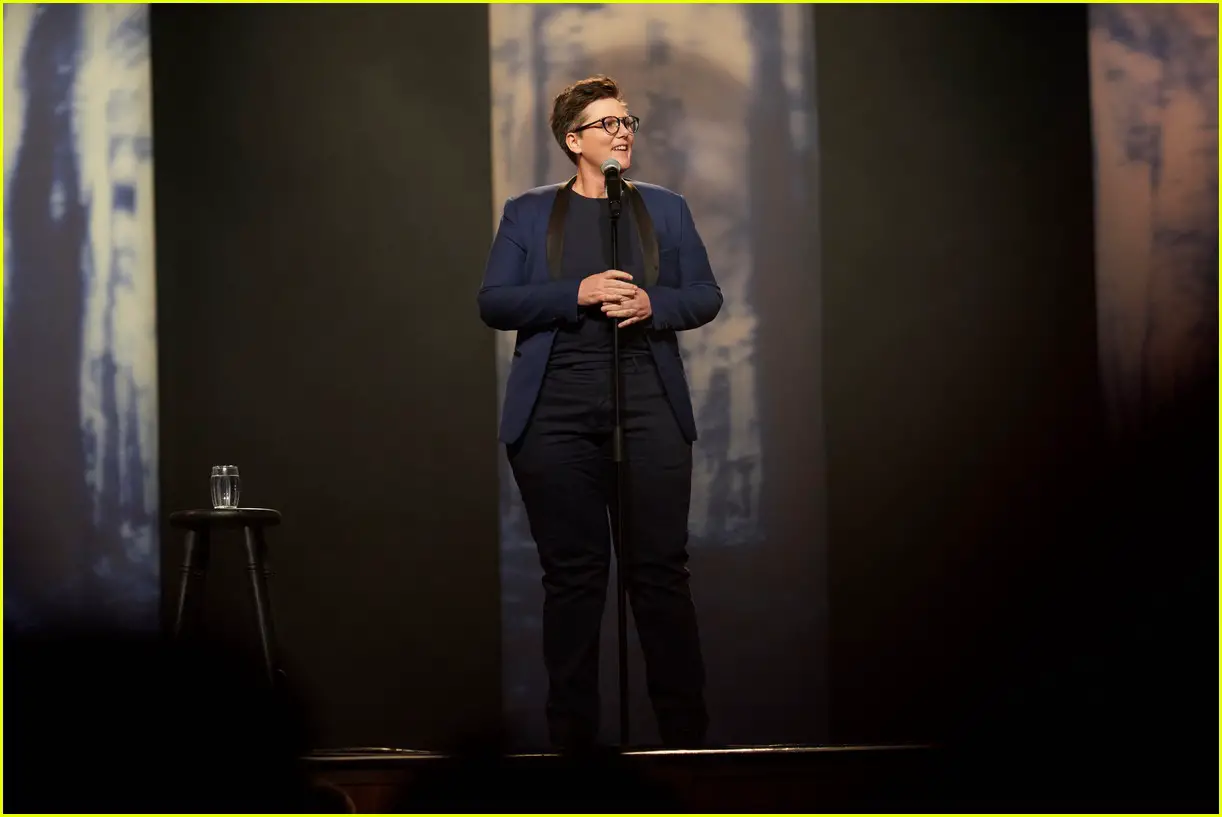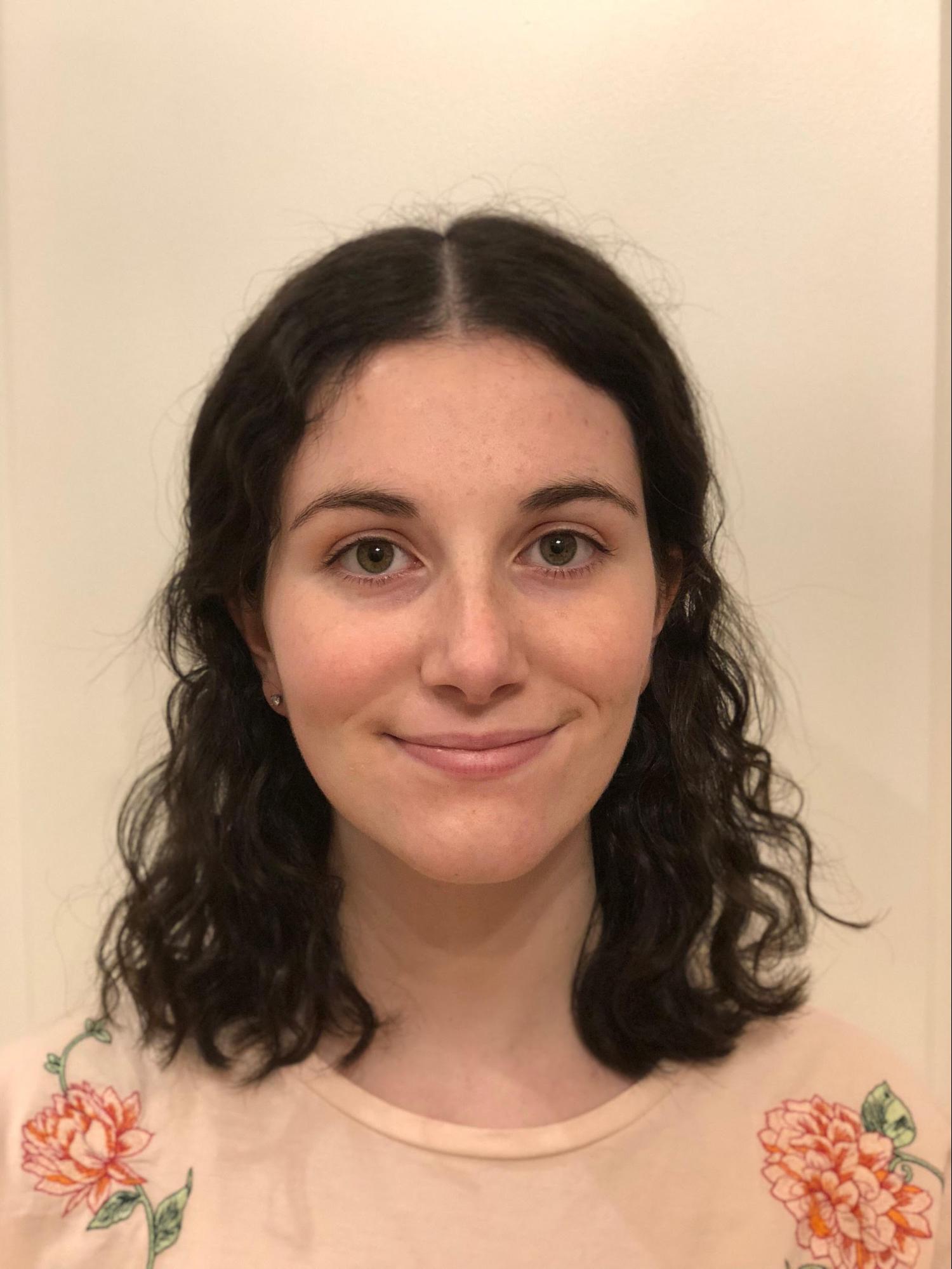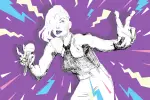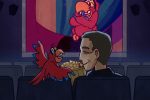The objective of the stand-up comic is almost manipulative, as Hannah Gadsby tells it in her new Netflix special, “Nanette”: Build and create tension with the audience, then alleviate that tension with a joke, so that the audience is grateful to the comic for the relief. “I make you feel all tense,” she said. “And then I make you laugh and you’re like, ‘Thanks for that. I was feeling a bit tense.'”
Gadsby, a comedian from Tasmania who is popular in Australia and the U.K., named her special “Nanette” after a woman she encountered who appeared compelling enough to prompt an hour’s worth of comedic material. Not long after the piece was named, though, Gadsby realized that the woman was in fact rather boring.
She scrapped the initial concept and started working on new material, but kept “Nanette” for no reason other than because it was what she’d named it in the first place. Somehow this feels right, given how little that title reveals about the upsetting, thoughtful, enraging, cathartic and transformative 60 minutes that follow.
In the special, Gadsby breaks down the traditional joke and the art form that has been built around it, until the audience understands the gruesome nature of comedy’s interior. There’s the aforementioned manipulation, yes, and the fact that a classic joke has only two parts: a “setup” and a “punchline,” or a beginning and a middle.
Stories, Gadsby countered, have three parts: a beginning, a middle and an end. The slight difference between a joke and a story is of utmost consequence, and as “Nanette” unravels to reveal the implications of this difference, it becomes clear why that is.
The traditional joke scraps the “ending” component of a story because many stories do not have funny endings at all, and Gadsby knows this firsthand from a difficult life filled with homophobia, violence and displacement. She grew up during Tasmania’s toxic national debate over the legalization of homosexuality, a period that would warp and define her forever.
“Nanette” is structured according to the logic that jokes have no end, with the first quarter relying heavily on that traditional format: how she amusingly “forgot” to come out to her grandmother the year prior; how she’d been chastised by other lesbians for not including enough “lesbian content” in her stand up; and how she once nearly got beaten up for hitting on someone’s girlfriend until, ha-ha, they realized she was a woman and not a man.
These anecdotes make everyone laugh, but other than Gadsby, no one knows how they end. Jokes have no ending, after all. Gadsby soon excoriates that very fact by using the back half of “Nanette” to continue telling each story beyond its punchline.
In truth, Gadsby had been too ashamed to come out to her grandmother, even as an adult; her community wanted her to pigeonhole herself, despite the fact that she identified minimally with what they were asking of her; and she did in fact get beaten within an inch of her life by that man, once he understood that she was a gay woman.
Gadsby circumvents comedy structures by telling stories and not jokes, so that the audience feels no reprieve from laughter. And that’s just how she wants it to be. I don’t think I laughed very much, because I knew I didn’t need to.
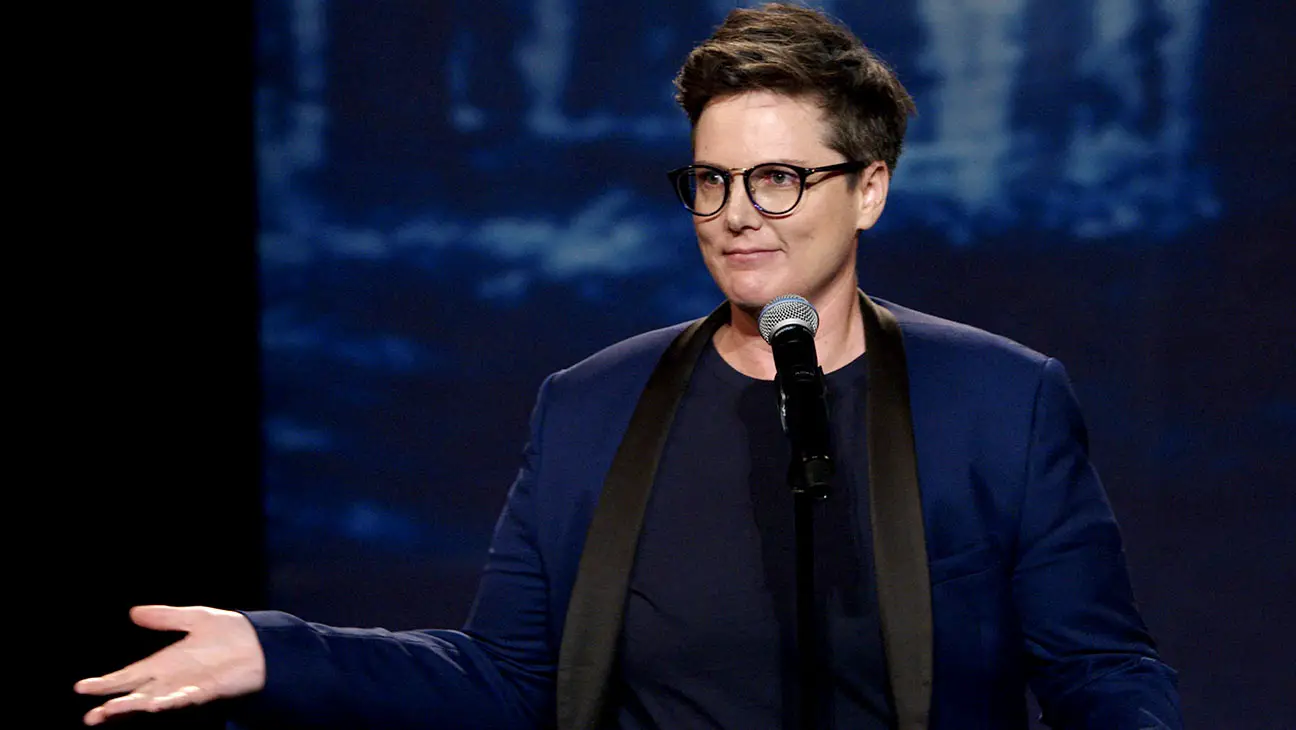
“Nanette” is not merely a subversion of a genre. It’s a rejection and a rebirth, in that order, as Gadsby boldly renounced the entire concept of the traditional joke and announces that she is quitting comedy, all within the first few minutes of the hour. “I have built a career out of self-deprecating comedy,” Gadsby said, “and I don’t want to do that anymore.
“Because do you understand what self-deprecation means when it comes from somebody who already exists in the margins? It’s not humility, it’s humiliation. I put myself down in order to speak, in order to seek permission to speak. And I simply will not do that anymore.”
It is a powerful moment, though the special is rife with these, as Gadsby intermittently descends into angry sermon, tearful pleading and exhausted resignation.
She riffed on the supposed “uselessness” of her art history degree from a remuneration standpoint, but then incorporates this education by giving an analysis of a world obsessed with power and reputation, not unlike the highbrow art world she was submerged in as a student, or the world of comedy from which her professional success was born.
She demonstrated through a story about a man who wagged his finger at her for medicating and insisted that her creativity as a performer would be stunted. “If Van Gogh had been on medication,” he told her, “we wouldn’t have the sunflowers.”
That niche art history degree came in handy as Gadsby gave a rundown of Van Gogh’s medicated years, but she used it to come to a universal conclusion: No one should suffer in order to create something for other people to enjoy.
This is only one part of an intense, meta demonstration of how self-deprecation — and by extension, self-humiliation and self-loathing — can be presented as something amusing or entertaining to others. But it ultimately manifests itself deeply into the human being it targets, corrupting them and internalizing their self-hatred.
“I understand the world that I live in because of art history,” she said. “I understand the world I live in and my place in it. And I don’t have one.”
She attributes this to the connection between power, money and art, all of which are realms dominated by men, who gaze lazily upon their subjects: beautiful, feminine, substanceless women. She knows she does not fit into either category.
With this in mind, Gadsby laments a world in which “reputation takes precedence over humanity.” This is how men such as Weinstein, Allen, Polanski and Picasso can make art and ascend to mountain peak, their reputations as talented artists considered more important than the humanity they’ve stripped from the women they’ve abused.
Women are just as corruptible by power, Gadsby levels, but power ultimately belongs to men. When Gadsby puts herself down for the enjoyment of an audience, is she in power? When she shares a beginning and a middle but not the unhappy ending just for the sake of others, is she in power? When she is a lesbian and a woman in this wholly unjust world, where minorities must make themselves palatable for a majority in order to survive, is she in power?
“Nanette” is a reminder of how forceful comedy can be when it is an honest analysis of the human condition, not just a series of setups and punchlines.
“Laughter is not our medicine,” Gadsby concluded. “Stories hold our cure.” This revelation is profound, and by the end of the 60 minutes that Gadsby used to get to it, there is no doubt that she is emphatically and tragically correct.


